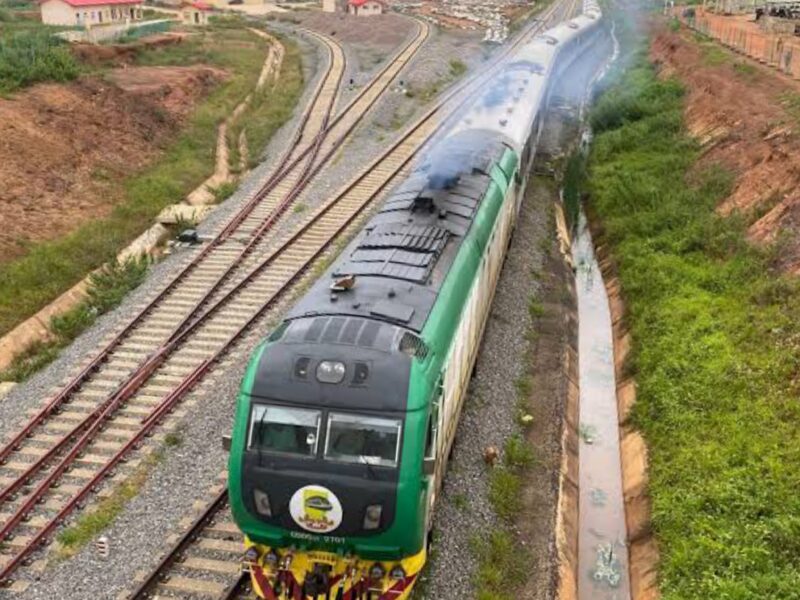Despite the challenges, many Nigerians commended the government for the free train services. At the Babatunde Raji Fashola Train Station in Lagos, passengers described the initiative as a relief amid rising transportation costs.
Abuja, Nigeria – Nigerians have embraced the free train services declared by the federal government for the festive season, but the initiative has been plagued by delays, overcrowding, and reports of disorganization across the country.
The federal government directed the Nigerian Railway Corporation (NRC) to offer free train rides across its passenger routes as a measure to reduce the burden of rising transportation costs. The free services cover key routes, including Abuja-Kaduna, Lagos-Ibadan, Warri-Itakpe, and Lagos-Ogun Mass Transit trains. The initiative, launched by NRC’s acting Managing Director, Ben Iloanusi, aims to transport an estimated 340,000 passengers by early January 2025, with 20,000 passengers expected daily.
Overcrowding and Chaos at Stations
At Rigasa Train Station in Kaduna, thousands of passengers struggled to board amidst overcrowding and confusion. Many passengers arrived with the misconception that tickets were not required for the free rides. This led to disorganized queues and clashes at boarding points.
One passenger expressed frustration: “We woke up early to get tickets, but there’s no guarantee of boarding. There’s no order, and it’s chaotic.”
Passengers who booked tickets online also faced challenges navigating the disorganized system, while those without tickets attempted to board directly. In some instances, travelers resorted to climbing through windows to escape the stuffy conditions in overcrowded waiting areas.
The lack of clear seating arrangements added to the confusion onboard. Some passengers claimed specific seats, while others argued that the service being free meant no assigned seating.
Stranded Passengers in Warri
In Delta State, passengers relying on the Ujevwu-Warri train service faced a different challenge as the train broke down on December 21, disrupting travel plans. The service, which is supposed to run two trains, has been operating only one due to technical issues, causing long delays. Commuters have been stranded for hours, with no alternative arrangements provided.
“Those who should have resumed work are still at home because the train isn’t functional,” a source revealed. “Passengers are stranded, and the breakdown has made commuting nearly impossible.”
Mixed Reactions Across the Country
Despite the challenges, many Nigerians commended the government for the free train services. At the Babatunde Raji Fashola Train Station in Lagos, passengers described the initiative as a relief amid rising transportation costs. However, some lamented difficulties in booking tickets online and overcrowding at the station.
Fatima Adam, a passenger who traveled from Abuja to Kaduna, appreciated the opportunity to travel without incurring transport expenses. “It was seamless, and no one was standing on the train,” she said.
In Lagos, NRC officials implemented a queue system to manage crowds, with passengers waiting for trains from the Mobolaji Johnson Station in Ebute-Metta. The Lagos Railway District Manager, Engr. Augustine Arisa, reported smooth operations on the Lagos-Ibadan route, with impressive passenger turnout.
The acting NRC MD, Ben Iloanusi, assured Nigerians that staff were working to manage the influx of passengers. “For those unable to secure tickets online, NRC staff will profile passengers at stations to ensure fair access,” he said.
The government’s initiative, though widely welcomed, highlights significant gaps in the country’s transportation infrastructure. Many Nigerians have called for better organization, increased train capacity, and improved maintenance to ensure the service runs smoothly.










Join our Channel...